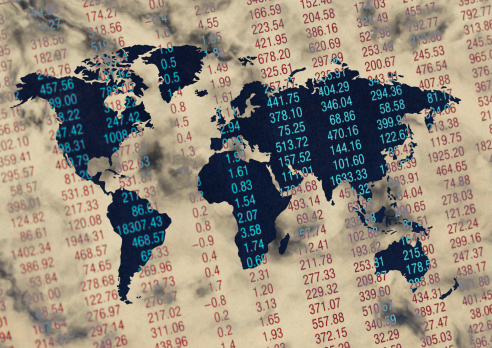
As always, there are geopolitical concerns that threaten stability and these always move the markets, whether they should or not. The fight against the Islamic State in the Middle East is nothing but the adoption by the United States and others of the least-worst choice. China is squashing the demonstrations in Hong Kong, albeit with more restraint than the government showed in 1989 at Tiananmen Square. And then there is the slow-motion struggle with Russia over its takeover of the Crimea and support for the Russian-speaking population of Ukraine.
A weaker global economy is probably a bigger concern. The World Bank and the International Monetary Fund (IMF) have recently lowered their forecast for the global economy in 2014 and 2015. The IMF forecast for U.S. gross domestic product (GDP) growth rose to 2.2% for 2014 and 3.1% for 2015. That sounds good until we recall that the original forecast for the United States called for 2014 growth of 2.8%.
ALSO READ: The Best (and Worst) Countries to Grow Old In
The IMF cut its 2014 global growth forecast from 3.4% to 3.3% and its 2015 forecast from 4% to 3.8%, and it warned of considerable downside risks to these new projections. Geopolitical risk, greed (the IMF calls this “financial excess” due to markets underpricing risks by not assessing correctly the uncertainties in the global outlook), lower growth in developing economies and secular stagnation combined with low potential growth. The IMF also warned about possible deflation in the euro area.
European Central Bank chief Mario Draghi said on Thursday that without boosting confidence in the eurozone he doesn’t see any way out of the downward spiral. To raise confidence in the euro, he believe, requires “structural growth” that comes “primarily through productivity.” Draghi also seems intent on raising the inflation rate in the eurozone back toward its 2% target. The short version of this is that Europe is a mess and there is no agreement on how to clean it up.
Third-quarter earnings season is now underway and the outlook has shifted significantly since July. S&P Capital IQ in July estimated third-quarter earnings per share growth of 9% for the S&P 500; the most recent estimate is 6.7%. The estimate for the financial sector in July was EPS growth of 4.5% and that has been cut to 4.0%. We will get a good reading on that during the coming week as all the big banks report third-quarter results.
The big drop comes in the energy sector, where S&P Capital IQ’s July estimate for EPS growth was 15.3%. That has been cut by nearly 55% to 6.9%. The loss to the energy sector is partially made up in other sectors as a lower input cost. It also puts more money in consumers’ pockets to spend on something other than filling up the family van with gasoline.
Finally there’s the dollar itself, which has been gaining strength and which led to the Fed commenting that a stronger dollar posed a risk to the U.S. economic outlook. The dollar index fell from a four-year high of 86.75 on October 3 to 85.91 last week. If the dollar continues to weaken, crude oil prices are likely to stabilize and begin rising again, cutting into any hoped-for consumer spending surge as the holiday shopping season begins.
ALSO READ: CEOs Look Less Confident in Third Quarter
Get Ready To Retire (Sponsored)
Start by taking a quick retirement quiz from SmartAsset that will match you with up to 3 financial advisors that serve your area and beyond in 5 minutes, or less.
Each advisor has been vetted by SmartAsset and is held to a fiduciary standard to act in your best interests.
Here’s how it works:
1. Answer SmartAsset advisor match quiz
2. Review your pre-screened matches at your leisure. Check out the advisors’ profiles.
3. Speak with advisors at no cost to you. Have an introductory call on the phone or introduction in person and choose whom to work with in the future
Thank you for reading! Have some feedback for us?
Contact the 24/7 Wall St. editorial team.


